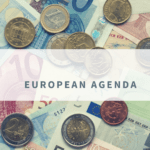The Commission outlines the contribution of competition policy and its review to the green and digital transition and the resilience of the single market.
The European Commission has adopted a Communication on a competition policy adapted to new challenges, which underlines the important role of competition policy for Europe’s progress towards recovery, the green and digital transitions and the resilience of the Single Market. The Communication highlights the intrinsic capacity of competition policy to adapt to new market circumstances, policy priorities and consumer needs: for example, the Commission has today adopted the sixth amendment to the Temporary Framework for State aid measures to allow Member States to provide targeted support to businesses during the coronavirus crisis. In addition, the Commission is currently carrying out a review of competition policy instruments to ensure that all instruments (State aid control, merger and antitrust) remain fit for purpose and complement its existing toolkit.
Executive Vice-President Margrethe Vestager, responsible for competition policy, said: “Strict enforcement of competition rules is essential for businesses and consumers to reap the full benefits of our single market. It gives businesses of all sizes the opportunity to compete on a level playing field. It encourages businesses to offer consumers the best and most innovative solutions. And it gives customers a choice of products and services, contributing to the reliability and diversity of supply chains. That is why now, more than ever, we need an effective competition policy that gives the European economy the agility and momentum it needs to overcome the challenges it faces. At the same time, competition rules have an inherent flexibility to adapt. Today we have adopted the sixth amendment to the Temporary Framework on State Aid, and we are conducting a review of competition policy, with unprecedented scope and ambition.”
Since the founding of the European Union, competition policy has helped to preserve and promote the Union’s economic prosperity. The vigorous application of competition law has benefited European consumers and businesses and has helped to nurture the dynamic and vibrant fabric of the European economy, made up of companies of all sizes.
Today, the Union is facing new challenges: navigating the steep path to recovery after the coronavirus crisis, while enabling European productive sectors to strengthen their resilience and lead the dual ecological and digital transition. An effective and well-calibrated competition policy can contribute to the success of this agenda, which will require extraordinary public and private investment, innovation and a well-functioning single market.
Some of the aspects mentioned in the Communication are illustrative:
- To contribute to Europe’s response to the coronavirus crisis and support the European recovery, the Commission has adopted the sixth amendment to the Temporary Framework for State aid, with a limited extension until the end of June 2022 of the existing measures. It paves the way for a gradual phasing out of crisis measures, while avoiding abrupt negative effects, and accompanies the recovery phase with new instruments to boost and attract private investment (more information on this link).
- In order to contribute to the ecological transition, the forthcoming State Aid Guidelines on climate, environmental protection and energy aim to support industry’s efforts to move towards decarbonization, circularity and the preservation of biodiversity, as well as to promote clean or emission-free mobility and energy efficiency in buildings.
In addition, the Commission intends to provide guidance and legal certainty so that cooperation can be oriented towards more sustainable products and production processes, in the framework of the update of the horizontal agreement block exemption regulations and related guidelines.
- In order to contribute to the digital transition, the forthcoming Broadband State Aid Guidelines aim to encourage the development of digital infrastructures by facilitating the deployment and adoption of broadband networks that respond to rapidly evolving user needs.
In addition, the Commission has strengthened its scrutiny of potentially problematic acquisitions in the digital sector through its new guidelines on the application of Article 22 of the Merger Regulation. In these guidelines, Member States are encouraged to refer potentially problematic transactions for review, even if they do not meet the national thresholds for notification purposes, allowing the Commission to review acquisitions of innovative companies that have a competitive potential beyond what their turnover would indicate, in particular in the digital sector.
- The Commission will continue to support Member States’ ongoing efforts to design, at pan-European level, major projects of common European interest (IPCEIs) that jointly overcome market failures by enabling breakthrough innovation and infrastructure investments in key green and digital priorities, in particular in the field of hydrogen, cloud computing, health and microelectronics. The forthcoming Communication on State aid for IPCEI will further increase the openness of these projects, facilitate SME participation and clarify the criteria for pooling national and EU resources.
- In order to contribute to resilience through open and competitive markets, merger control at the European level will continue to enable companies to achieve greater scale, while maintaining competitive markets and diversified supply chains. In addition, antitrust policy enables EU companies to join forces to boost their research and development efforts, to design, produce and market products or to jointly procure products or services they may need for their operations.
Finally, taking into account the exceptional situation regarding semiconductors, their relevance and the dependence of supply on a limited number of companies in a complex geopolitical context, the Commission could consider approving aid to fill potential funding gaps for the creation of, in particular, pioneering European facilities in the semiconductor ecosystem. Such aid, based on Article 107(3) TFEU, would be subject to robust competition safeguards and would ensure that the benefits are spread widely and without discrimination across the European economy.







Leave a Reply